ChangingStory1.18-CultureChains

I can’t pick up The Washington Post without stumbling into waves of culture change recommendations: Congress “needs a culture change,” so does Metro, and The Pentagon, not to mention (which means I’m mentioning) the IRS, The DOE, DHS, and, of course, The State Department. Private companies, public organizations, even non-profits, seem in dire need of this most curious kind of change; or so say the editorial boards, attorneys general, independent watchdogs, blue ribbon committees, and every freaking inspector general in the DMV.
Slip over here for more ...ChangingStory1.15-ShThFuUp

I’ve been looking for any concrete evidence that telling anyone what they really should otta do in any way results in them following these instructions. I’m concluding that these exhortations might be for the sole purpose of feeding the exhorter and nobody else. Like the street corner screaming preacher, nobody pretending to be invisible as they slink by ever finds Jesus on their way past, though the preacher sure seems to. Perhaps the very form of the injunction shuts down the ability to follow the advice, or, I think more likely, telling just does not work.
Slip over here for more ...ChangingStory1.14-Mis-formed

I score no better when completing surveys. Many forget to include a ‘none of the above’ choice, and most seem to insist upon an answer, however irrelevant my forced response might be.
Slip over here for more ...True-th

I’m feeling older now, probably because I have grown older. I notice my age in my growing inability to feel cynical about anything, and also in my growing acceptance of what matters. I once believed that I might have stumbled upon a bit of radically new knowledge. I now understand that my elders had staked claim to both that knowledge and its adjacent folly long before I appeared to deride them. Slip over here for more ...
Co-Hear-ence

"Our language doesn’t provide a translation to tell us what it is. Only our hearts can do that."
Nothing seems to work very well without it. Push, shove, wink, nudge, nothing really makes anything better without some ability for it to hear itself. Without some mysterious coherence, we’re never more than the simple sum of our parts, and often much less. No instruction manual ever showed how to create or even install coherence. For most, it’s either there or not; and might be the most commonly overlooked component. We might not consciously notice its absence.
I believe we each can feel its presence, though we might not have a ready name to assign to it. We might mistakenly ascribe its effect as luck, or synchronicity, perhaps superior design, though no spec sheet ever prescribes its presence. Only charlatans ever promise to deliver it. Only rubes ever agree to accept that delivery. It might be the rarest element, sufficient without ever approaching necessary; the cherry on top.
Gently

I’ve long espoused the conviction that change arises from choice. I don’t always understand the more subtle point that choices seem scarcest whenever someone’s stuck, and I can (really, I CAN) proliferate choices forever for anyone else, but to no useful end. Until the client sees a choice, he cannot make a choice, and who knows where the insight necessary to see alternatives comes from? I don’t, though I used to believe that I did. I didn’t. Slip over here for more ...
Who-ey-Two-ey

I subscribe to the perhaps delusional belief that reason makes a better excuse than it does an imperative. Much of what everyone does every day makes little sense, it just works. If it has to make sense to even qualify to be tried out to see if it might work, we shouldn’t need to make any excuses if we’re stuck. We know the cause and it is us. Slip over here for more ...
Who-ey

I almost never catch myself slipping into my second person, where a disembodied ‘he’ replaces me. I’m a zombie then, looking for fresh brains, undead but not yet realizing it. I feel strangely powerful when I pad myself behind some projected persona rather than presenting myself as just my little old self. I can spew mindless he-mes as if ithey were genuine self-reflection, and I’m usually the last to know. Again. Slip over here for more ...
Object-ivity

I sometimes suffer from a form of noun poisoning. I’ve bestowed a name, a good meme-y one, then strut around as if I’ve conquered it, though it wasn’t an ‘it’ until I objectified my sensory experience into that handy pocket size. I doubt that anyone could ever muster a completely proper characterization. I deal in impressionistic portraits, hardly photographic quality. You probably do, too. Slip over here for more ...
StepTooFar

These are delicate subjects. Only the most dedicated masochist enjoys awakening from this dream, even though the dream seems to be dooming him to an unwanted fate. It seems way too late for anybody to do anything about much of anything. Fate seems to have already won. What now? Slip over here for more ...
Ineptitude

There, I’ve done it again. I’ve tried to chase off another client. Some won’t be so easily dissuaded, but others will. You see, I’ve deliberately committed a taboo, and one of the more powerful ones, too. Ineptitude, or, more properly stated, the appearance of ineptitude, might outrank malfeasance on the Must Be Avoided List. A stumble quite easily amplifies far beyond mere accident to tarnish even the most otherwise innocent reputation. Generosity doesn’t seem very high on anyone’s to-do list. Slip over here for more ...
Smalls

“Let me paint you a broad brush overview, Mr. Smalls.” Every client tries to first show me a big picture of their difficulty, but I’m listening for small things.
BriefConsulting doesn’t scale, but it doesn’t need to scale. How would The BriefConsultant influence an enterprise-wide initiative? Certainly not by focusing upon the enterprise, whatever that is. Size serves as a distraction, a distancing abstraction when scaled beyond small. Slip over here for more ...
FableTales

The distinction between story and reality seems difficult to maintain. Stories too easily sneak across that unguarded boundary to inhabit the place real life lessons used to live. These invasions tangle up expectations, leaving even the most mindful anticipating salvation or doom, and little else. Clients call the BriefConsultant when anticipating doom, seeking some kind of salvation. Slip over here for more ...
Project-ionManagement

The BriefConsultant might receive a panicked telephone call about this time, when the earlier projected lifecycle threatens to become an absolutely unanticipated death spiral. Being a skeptic by nature, I almost half-listen as the prospective client recounts the many surprising L and M shortcomings so recently and shockingly uncovered. I’ve heard the story so many times before, only the reported color of Goldilock’s shoes varies from prior tellings. Slip over here for more ...
Patterning

The BriefConsultant doesn’t think like this. While it might seem perfectly possible to classify any observed activity into a pre-existing grammar of actions, I find little leverage in this pigeonholing. BriefConsulting seems deliberately inefficient because it isn’t interested in pattern matching, but pattern pulling; patterning. Slip over here for more ...
BlankPage

I can’t rightfully say that I know much, but I do hope to be learning. I try to acknowledge the here and now as here and now rather than then and there in disguise, and recognize that this moment fully qualifies as virgin territory. Nobody’s ever been exactly right here before. This fact disqualifies my experience but might more fully qualify my senses—my presence, should I somehow find the ability to sense the here and now; right here and now. Slip over here for more ...
Re-late

I tell a passable, but unconvincing story. Everyone says we’re all about community, but we have yet to develop a convincing dialect to support that assertion. Most often, community serves as code for .community, abbreviated to .com, which means I want to sell you something. If you buy, you belong. If you buy again, you belong more. If you buy early and often, you’re a best customer, qualified to receive special attention.
Slip over here for more ...Sides
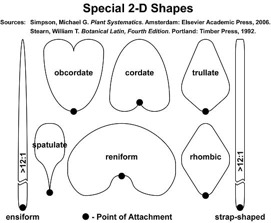
No day ever goes by but what I’m invited to stand up for this or its logical counterpart, that. I’m challenged to show my true colors, as if they could not possibly include a rather fuzzy grey. My clients insist that I see their world through their eyes, and I surprise myself when I find I’m almost able to, but without the conviction they bring to the experience. I might be able to appreciate the sides they see without actually seeing or ever really believing in them.
Slip over here for more ...SacredResponsibility
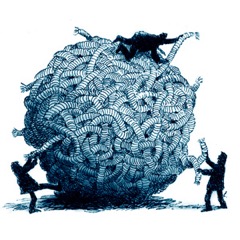
The BriefConsultant might be mistaken for help, or even for a helper, but he cannot be either. The role, properly deployed, might involve more shoving back out onto the ice than rescuing the apparently inept skater. The client is usually the source of his own difficulty. He might as well be the source of the resolution of that difficulty, too.
Slip over here for more ...ExpertTeasers
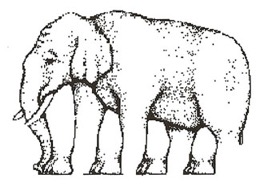
These adventures almost never turn out well. Often, it seems, the clueless decision maker will amplify his own cluelessness by engaging his expertise. Some manage to transcend this downward trend, though this seems to demand an almost inhuman ability: the unlikely ability to demonstrate expertise in NOT being an expert.
Slip over here for more ...Brief 1.6-NoLedge

This assertion seemed about as unlikely as every other confident prediction accompanying every other revolutionary strategy for utterly transforming primary education I’ve watched crash and burn over the last more than half century. Primary educators seem more prone to seduction by The Next BIG Thing than anyone, with the possible exception of your standard Snake Oil Salesman. The wise S.O.S. cautions their ‘fish’ that the elixir might taste unimaginably horrible and could leave the severely deficient feeling much worse in the short run. In the longer run, of course, the canny S.O.S. will have beat town, leaving no forwarding address. Slip over here for more ...
Brief 1.5-Dot2Dot
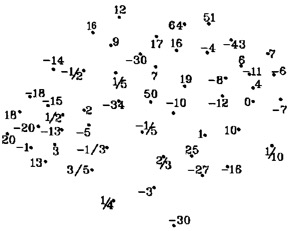
The first sentence just blurts out, though it’s often right and survives every editing pass to remain there on top. From there, I scan the immediate neighborhood, certain that some likely lilly pad will appear. I often hear it calling me, echoing the sound of the seed sentence, without pretense. I hop over there, listening carefully then, bending the initial inspiration only slightly to lightly echo emerging rhythm and assonance.
Slip over here for more ...Brief 1.4-ThreeThirty

It’s three thirty this morning; cold and dark outside. The light from my office window casts long shadows of the garden furniture across the garden wall. Not even the squirrels stir out there. Slip over here for more ...
Brief 1.3-PhiloSophy

Anyone setting out to accomplish anything should encounter some daunting contradictions, otherwise they’re probably dozing at the wheel. When selecting a method, none available should exactly fit the situation. When acquiring resources, some will prove unavailable and others abundant but of undesired quality. Even selecting a goal should seem to demand encumbering compromise. No recipe ever baked a cake.
Filling these inevitable gaps seems to require a meta-understanding, acknowledgement of the gaps and acceptance of the personal responsibility for seeing them filled. While we might well rely upon experience and knowledge to guide us up to the edge of any gap, something else bridges it. Almost anything but experience and knowledge might work. Luck, even.
But being human, most of us will try to reason ourselves across. We’ll pull out the Rules of Thumb bag we keep hidden in the front hall closet or dredge up the clouded over laminated card containing what we once chose to be our ethical imperatives. Almost all of us will rely upon what feels like a sixth sense, a quiet angel who rides on one shoulder, whispering in our ear. Each of these comprise our philosophy.
Far from the distraction from action it’s sometimes characterized as being, philosophy might well be our constant, if often quiet, companion. While we might effortlessly describe technique, the reasoning and world view behind that technique remains largely undiscussable, perhaps because that reasoning seems at root unreasonable. I could mention the Münchhausen trilemma, named after the mythical hero who managed to pull himself and the horse he was riding out of quicksand by merely pulling up on his own hair; an illogical impossibility. Proving any truth or falsehood easily devolves into one of three popular techniques, hence the trilemma: Circular argument, where theory and proof reinforce each other, Regressive argument, where each proof begets another--ad infinitum, or by far the most popular, Axiomatic argument, where we “just know” it’s true. Much of what we hold to be self evident, isn’t, but an axiomatic insistence instead.
©2013 by David A. Schmaltz - all rights reserved
Brief 1.2-MissedUnderstanding

My identity felt it first, turning ghostly pale. Maybe I’d become overly ego involved, no longer dealing in ideas but self. To miss understanding my idea might mean I do not exist, or exist distinctly enough. I cannot even muster a decent me without connecting with you.
I’ll try the same message louder, I might even s-l-o-w down, hoping the disconnection came from faulty volume or hasty presentation. These tactics never work. Never.
Slip over here for more ...Brief 1.1-Universe-ality
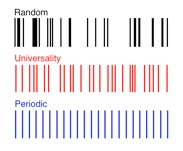
Authoring involves an awful lot of foiled self-deception and foibling self disclosure. It shaves the old pig until it squeals and scurries home. Home isn’t just where the heart resides, but it sits smack dab in the center of the universe. Franklin insists that the key to universality lies hidden in the deeply personal. The more personal, the more likely others are to find themselves peeking out through the prose. The one thing we all have in common might be that we all experience the personal, and we each recognize the presence of the universal in that seemingly least-likely place. Slip over here for more ...
Brief 1.0-Id-Entity
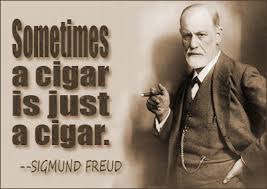
The trick, once mastering bald aloneness, lies in daily re-mastering it, for solitude serves as no more than soil within which unlikely seeds might sprout, where the completely cognitive and conceptual push beyond the leaf litter into space where anyone might experience them. What blooms seems so very different from the parent seed or rhizome that even the solitary gardener might mistake them for volunteers, accidents of potential, nutrients, and time. Slip over here for more ...
FUQ

I find it easy to proclaim that insight resolves more difficulties than answers ever do, even though this notion might initiate a slow, self-referential, inward spiral in search of insight. Where does insight originate?
I know, or I think I know, where answers reside. I pose a question then initiate research with the implicit assumption that someone’s already answered it, or something similar, before. The friendly research librarians can help, though these days, search a-la Google® more often stands in for old-fashioned research. And if I’m fortunate enough to hold a fundamentally decidable question, either search or research will likely satisfy my curiosity.
Few of my questions seem to comfortably carry the fundamentally decidable label anymore, if they ever did. Slip over here for more ...
The Burgeoning Self Deception Industry

Self-helplessness accounts for most of the activity within this industry. Slip over here for more ...
BriefConsulting 2.8: Because and Affect

I was interested in what happened in those small hours, so I’d sometimes mosey in under the guise of offering my support. I suppose my presence hurt more than it helped achieve resolution because I was deeply interested in understanding why these problems happened. I learned that the most effective midnight debuggers didn’t really care about finding the root cause of these problems.
Slip over here for more ...BriefConsulting 2.7: Tickling The Tickle Point

Anyone who’s ever wrestled a three year old out of a tantrum into a giggle fit understands the nature of The Tickle Point. It’s that point where the seemingly permanent frustration notices some brighter-shinier. True, nothing’s really changed at that point, except, perhaps, for focus. But once the focus changes, the previously impermeable barrier’s penetrated. Then, anything might happen. Even something really different.
Slip over here for more ...BriefConsulting 2.6: Up To Something

I look for that look in their eye, that smirky stare that swears it’s not up to anything, ... honest. The poorly-concealed joke. The heart-lightening nod. Their affect emanates quiet authority because these people are up to something.
This matters. More than almost anything. More than higher purpose. More than lofty goals. More than that promotion, paycheck, or bonus. Being up to something salts and spices and sweetens every engagement, while cynicism stalks anyone unfortunate enough to not be up to something.
”Who stole your tricycle?”
Slip over here for more ...BriefConsulting 2.5: Saying Something
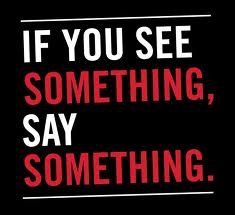
Brief Consultants often work in pairs, one seeming to engage while the other looks to be just hanging around the edges there. The one who looks like they’re slacking, they’re in charge.
Even when I’m working solo, this Brief Consultant watches because most of my presence value comes from me noticing something. I engage briefly because it doesn’t take long for me to inherit the same blind spots as everyone else within that space. For a brief few hours, I can see more than anyone already immersed in that soup, and no context needs more than a day or two to weave its trance. Nobody feels anything as perception fades.
Slip over here for more ...BriefConsulting 2.4: Purpose Full

I hold purposeful pursuit as one of my Seven Ethical Responsibilities. As a Brief Consultant—heck, as a man—I’ve grown to understand that few diseases do more damage than purposelessness. And for the longest time, I misunderstood where that purpose had to come from, and what purposeful pursuit really meant. Maybe all that church-going in my youth convinced me that little old me couldn’t quite qualify as a high-enough purpose; that what I wanted didn’t really matter if only I could connect with some ’truly’ higher purpose, I’d be in deep cotton. Deep shit, more likely.
Slip over here for more ...BriefConsulting 2.3: Is-ness As Usual

Poison tell? I call ‘Is’ the poison tell because it tends to materially misrepresent experience while fully satisfying the ear. I can say, “It ‘is’ cold outside,” when I really mean, “It feels cold outside” or, “It looks cold outside.” Outside ‘isn’t’ cold. A dictionary might define cold as a class of temperature positioned somewhere South of cool and well North of ‘my ass just fell off.’ No dictionary defines cold as ‘outside.’ Yet language comfortably tolerates this indiscretion. Only two letters. One insidious word.
Slip over here for more ...BriefConsulting 2.2: The Very Best

One client explained how, in the course of a week at age eighteen, she’d gone from being recognized as the smartest person in her county to realizing that at MIT, she was barely average, if that. She’d had a lot of tacit identity invested in her best and brightest persona, even though she’d never strived to be recognized. Once the gift evaporated in that lofty Cambridge atmosphere, she didn’t know who she was, or who she was supposed to become.
Life seems comprised of peaks and valleys, and the narrowest road always follows the ridge line. Stuck on top leaves few lateral possibilities, and it’s a long way down from up there to the valley floor.
Slip over here for more ...BriefConsulting 2.1: ehT metsyS

This open-ended question often starts one of this Brief Consultant’s engagements. Rather than starting with the end in mind or dwelling on The (infernal) Problem, I’m curious about the person in front of me. I want to hear their story.
Many notice that nobody ever asked them this question before, and most have been inching for someone to tell their tale to. Might as well be me.
Within the first five minutes, this client will say something that seems to jangle a chain of understanding, and not usually my chain. Theirs. Something significant shifts when the focus changes from hopefully peering forward into casually reflecting backward.
Nobody gets to understand forward.
Slip over here for more ...BriefConsulting 2.0: The System

The second stage entails trying to fix the system so it will work as I thought it was supposed to work. This seemingly reasonable response encourages ‘creeping featurism,’ as the system, originally—and unavoidably—naively designed morphs to accomplish ends unimagined by the original designers. Rarely does any system get discarded in favor of wholesale redesign after encountering difficulties, even after catastrophic failures. The original design sticks, and the fixes tend to accumulate until they ascend to the status of the latest problem with The System.
Slip over here for more ...BriefConsulting 1.9: Generosity Too


Unspoken conspiracies amount to unconfirmed conclusions about another’s motives, purpose, character, or beliefs. These commonly emerge from a small violation of
the generous interpretation rule, and usually require only one to play, but may metastasize into into urban legend-quality stories, where a large group engages in something not unlike mind reading; usually, unusually inept mind reading.The pattern starts when someone decides what another’s behavior means, then responds as if their behavior meant that, creating a perfectly self-sealing situation.
Slip over here for more ...BriefConsulting 1.8: Generosity

I’ve explained that Brief Consulting avoids interpreting behavior as pathology, transforming what might otherwise seem dysfunctional into merely differently or curiously functioning. This little flip demonstrates generous interpretation in action: Interpret difference as difference rather than pathology. If I couldn’t possibly know, I’m free to make up any meaning that works best for me. Heck, I could even get curious and ask.
See how this small shift might shorten the length of a consulting engagement? Sometimes mindreading or body-language interpreting seems like a shortcut, but it usually turns into the longer way around. If the client’s words and the music don’t seem to match, I could initiate a controversy by ascribing my ungenerous meaning or encourage understanding by simply pointing out what I see and asking what it might mean to my client.
I tune up my generous interpreter by engaging in what I call High Quality Consultant Humor.
Slip over here for more ...BriefConsulting 1.7: Leadershit

Pity the poor devil perceived as the leader. Slave to Utopian notions, center stage, performing to a critical audience, certain to dissatisfy. The human response seems to be to try harder: to please, appease, ... Oh, pa-lese! The mythos surrounding leadership seems greater than the sum of its parts.
Leadershit has two parts. The first part lays undefinable expectations on some individual because they happen to occupy some position, often a position of presumed authority. The second part gives away personal authority, like peasants paying tribute to their king, to someone presumably more authorized to have it . It seems incongruous that a democratic society should rely so much on crypto-kings and pseudo-serfs, leaders and followers.
Slip over here for more ...BriefConsulting 1.6: Presence

Staying present in this present when surround by clever planners constructing even cleverer plans might be the greatest challenge for anyone, consultant or client.
Slip over here for more ...Bare-assed Consulting 1.4: The Mess

The bare-assed consultant only rarely resorts to sorting through—physically re-ordering—any mess. He first sits with it instead, under the belief that until he’s sat with the chaos, he’s unlikely to understand its nature well enough to avoid making that mess even messier. I make a crucial distinction, though, between sitting with the mess and plopping myself down in the middle of it.
Slip over here for more ...Bare-assed Consulting 1.3: The Blindnesses

As a truly bare-assed consultant, I can’t hardly help but acknowledge how blind I must be. Blind because I’m here, not there; me, not you; wagging on the tail-end of a lifetime of experience which probably doesn’t qualify as representative, universal, or particularly enlightening. I’m blinded by this shred of enlightenment, almost certain I cannot see even half of what’s before my eyes.
Before, when I was still inflicted with the curse of unconscious blindness, I could muster certainty from scant evidence, and could even swagger with the sour scent of confidence.
Slip over here for more ...Bare-assed Consulting 1.2: Add Vice

The bare-assed consultant deeply appreciates that giving advice, cheapens it. Further, unbidden advice rarely produces intended results. Conveniently deflected and comfortably ignored, the very best advice might be to avoid giving any advice. Still, The Advice Vice seems as common to consultants as Brooks Brothers suits.
It took a very long time to wean myself off my advice-giving Jones.
Slip over here for more ...Bare-assed Consulting 1.1: The Normals

Maybe it just comes with the territory, but we seem awfully interested in fitting in, in following the trends, in adopting the most up-to-date. Perhaps we don’t want to be left behind. The ensemble’s performance, though, masks remarkable variety. Nobody lives like the population average, yet that average might be the most reliable reference to what’s normal and what’s not. The result can be an awful (with particular emphasis on ‘awful’) lot of theatrics: going along to get along, fitting in, passing as, mimicking, and the thousand other artifices, small and large, which seem to separate us from our preferences, from our selves. All perfectly normal.
If individuals are easy prey for such quagmires, organizations seem to encourage second-order versions, where individual adaptations tangle together, producing genuinely Gordian results. The popular term ‘dysfunctional’ might aptly describe every individual, every organization now, but I prefer the more normalizing term ‘differently functioning.’ Slip over here for more ...
Bare-assed Consulting 1.0: Sick's Sigma

And the timing of the consultant’s arrival won’t much influence the outcome. The tariff, as Peter Block once noted, on imported method inevitably exceeds the expected return.
These initiatives always start as bright ideas,”I know, we’ll just put on a show!”-quality fantasies, laden with invisible externalities. Whether a Senior VP read some article in an airline magazine or transferred in from a company that had fully integrated some scheme, the mandate comes from the top down. The suits arrive shortly after the announcement, mustering a committee of ... cough ... cough ... volunteers ... chartered to change the company’s culture from the bottom up.
Therein lies the disabling paradox Slip over here for more ...
BriefConsulting 1.5: Outing The Fix

I thought my challenge was a common one, especially for writers. I’m a hesitant joiner, though I’m absolutely convinced that community produces by far the best outcomes. So, when I’m invited to a writer’s retreat like this one, I spend at least the day before I leave trying to talk myself out of attending. I’m usually better at this than I was this time, so I’d shown up. Then, in this last session, I stood up.
Once en-grouped, I explained my experience in greater detail, then the inquisitors began. I noticed a twinge of thrill in my chest as we began, a sense that this session just might fix my life-long reluctance, and this possibility felt really, really good. Maybe I could fit in instead of force-fitting in. Slip over here for more ...
BriefConsulting 1.4: Too Small Shoes

Many organizational initiatives and personal adventures feature a similar decision point. However careful the planning, some otherwise insignificant element gains prominence and threatens the entire enterprise. Going forward means accepting quite different from expected terms. Slip over here for more ...
BriefConsulting 1.3: Not Supposed To Talk About

Sometimes my client responds, “Oh, nothing. We’re very open around here. We can talk about anything, anytime.”
”Fine,” I respond, then I watch and listen more carefully to hear what doesn’t get talked about. What dog isn’t barking? What birds never sing? Slip over here for more ...
BriefConsulting 1.2: Expertise

Every industry, every company believes they are unique, and presume specific knowledge of their particular operation essential for any consultant. Curiously, the most common difficulties are just that, common; universal. Stuck looks remarkably the same where ever it appears. Hire for industry expertise and you’ll get industry expertise when you might need someone with fresh eyes to look in on the situation.
Being an expert at not being an expert requires some rewiring inside the consultant first.
Slip over here for more ...BriefConsulting 1.1: Bare Naked

My transition from Empty Suit to Bare Naked consulting will never end. Vestigial misgivings remain, tugging whenever I start a new engagement dance. I’d quite honestly rather hide behind the protective starched shirt chest plate armor, dabble in nice-nice banter, then ‘suggest’ some solution, but I don’t. Not anymore. I never once saw the formality accomplish what I’d quite foolishly promised. The problem I’d been asked to resolve was never once even half the problem that the formalities turned out to be. If we can’t do this naked, we won’t be doing anything at all.
Slip over here for more ...BriefConsulting 1.0: The Suits
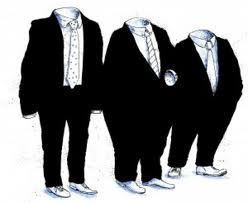
Their advice seems equally disconnected. They share abstract models, distilled to wispy essence—ten easy, twelve step, top five best practices, and the most mysterious commodity of all, expertise.
Slip over here for more ...

